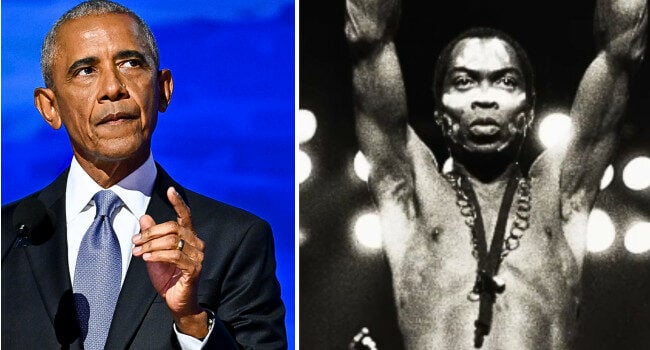Music Legend Sonny Curtis, Voice Behind Iconic TV Themes, Passes Away at 88

Sonny Curtis, a revered figure in rock and country music, known for penning the iconic “I Fought the Law” and the memorable theme song to The Mary Tyler Moore Show, “Love is All Around,” has passed away at the age of 88. His death on Friday (Sept. 19) was confirmed by his wife, Louise Curtis, and shared by his daughter, Sarah Curtis, on his Facebook page, noting a sudden illness. Curtis’s multifaceted career saw him inducted into the Rock and Roll Hall of Fame in 2012 as a member of The Crickets.
Born during the Great Depression to cotton farmers in Meadow, Texas, Curtis’s musical journey began early. He was a childhood friend of Buddy Holly and an active participant in the nascent rock scene, jamming with Holly in the mid-1950s and even opening for Elvis Presley as a regional act. His talent for songwriting emerged rapidly; before turning 20, he had already penned hits like “Someday” for Webb Pierce and “Rock Around With Ollie Vee” for Buddy Holly.
Curtis was part of Holly’s group, The Crickets, but left before Holly achieved major stardom. He rejoined the band after Holly’s tragic death in a 1959 plane crash. The following year, he was featured on the album In Style with the Crickets, which included his raw classic, “I Fought the Law.” Curtis reportedly dashed off the song in a single afternoon, claiming no direct inspiration, and it also featured the Jerry Allison collaboration “More Than I Can Say,” which became a hit for Bobby Vee and later Leo Sayer.
It wasn't until 1966 that “I Fought the Law,” with its unforgettable refrain “I fought the law — and the law won,” found its stride when the Texas-based Bobby Fuller Four propelled it into the Top 10. Over subsequent decades, the song achieved legendary status, covered by a diverse array of artists including punk pioneers The Clash, country legends Johnny Cash and Nanci Griffith, and mainstream rock icons like Bruce Springsteen and Tom Petty. Curtis often referred to it as his “most important copyright.”
His other signature song, “Love is All Around,” presented a stark contrast to the resigned tone of “I Fought the Law” with its uplifting message. In 1970, while working on commercial jingles, Curtis was commissioned by his friend Doug Gilmore to write a theme for a new CBS sitcom starring Mary Tyler Moore. He was provided with a four-page format detailing the show’s premise. Curtis met with co-creator James L. Brooks, initially perceiving him as cold, but after playing his composition on a guitar, Brooks was immediately impressed, gathering others to listen and record it.
“Love is All Around” eventually served up lyrics that became as indelible as any in television history: “Who can turn the world on with her smile?/ Who can take a nothing day, and suddenly make it all seem worthwhile?/ Well it’s you girl, and you should know it/ With each glance and every little movement you show it.” The song’s enduring popularity was further solidified by the show’s visuals, particularly Moore’s triumphant hat toss as Curtis sang, “You’re going to make it after all.” While the producers initially sought Andy Williams to sing the theme, he declined, leading to Curtis’s easygoing baritone becoming the iconic voice. Curtis initially wrote a more tentative version for Season 1, with lyrics like “How will you make it on your own?” and “You might just make it after all,” which were later revised for the remaining six seasons as the show became a hit.
Beyond these two giants, Curtis’s songwriting catalog was extensive, including Keith Whitley’s country hit “I’m No Stranger to the Rain” and The Everly Brothers’ “Walk Right Back,” which Curtis completed during Army basic training. His work was also covered by celebrated artists such as Bing Crosby, Glen Campbell, Bruce Springsteen, and the Grateful Dead. He released several solo albums, including Sonny Curtis and Spectrum, and scored a country Top 20 hit in 1981 with “Good Ol’ Girls.” In later years, he continued to perform with Jerry Allison and other members of The Crickets, releasing albums such as The Crickets and Their Buddies, featuring collaborations with Eric Clapton, Graham Nash, and Phil Everly. Notably, Curtis also wrote “The Real Buddy Holly Story,” a song that served as a rebuke to the 1978 biopic of the same name.
Curtis settled in Nashville in the mid-1970s with his wife, Louise. His contributions to music were widely recognized, earning him inductions into the Nashville Songwriters Hall of Fame in 1991 and, as part of The Crickets, into Nashville’s Musicians Hall of Fame and Museum in 2007. Five years later, his induction into the Rock and Roll Hall of Fame lauded The Crickets as “the blueprint for rock and roll bands (that) inspired thousands of kids to start up garage bands around the world,” solidifying Sonny Curtis’s lasting legacy in music history.
You may also like...
Wolves Fandom Erupts: 'Sell the Club!' Chants Rock Stadium Amidst Frustration!

Wolves fans' frustration reached a boiling point at Molineux, with chants against the club's ownership and manager Vitor...
Haaland's Agony: Disallowed Goal and Injury Plague Man City's Disappointing Outing!

Manchester City's nine-match unbeaten run came to an end at Villa Park as Aston Villa secured a victory, highlighted by ...
Andrew Garfield Teases Spider-Man Return, But Fans Should Brace for a 'Catch'

Andrew Garfield has expressed a keen interest in joining Sony's animated *Spider-Verse* franchise, hinting at a potentia...
Mel Gibson's 'Passion of the Christ' Sequel Faces Blasphemy Outcry Over Jesus Recasting

Mel Gibson's highly anticipated sequel, "The Resurrection of the Christ," is moving forward two decades after the origin...
Snoop Dogg Drops Bombshell at Verzuz Relaunch in Vegas, Igniting No Limit-Cash Money Battle

Snoop Dogg made a surprise appearance at ComplexCon in Las Vegas, joining his former label, No Limit Records, in a star-...
Daft Punk Legend Thomas Bangalter Stuns Paris with Surprise DJ Set Alongside Fred again..

Daft Punk's Thomas Bangalter made a rare surprise appearance with Fred again.. for a DJ set at Paris' Centre Pompidou. T...
Obama Dives Deep: New Podcast Honors Revolutionary Fela Kuti

Former U.S. President Barack Obama has curated a new 12-episode podcast series, "Fela Kuti: Fear No Man," celebrating th...
Waje & KCee Ignite Romance with New Track 'Luvey Luvey'

Waje has released a new single, “Luvey Luvey,” featuring KCee, a warm and feel-good song celebrating love. Blending Afro...
